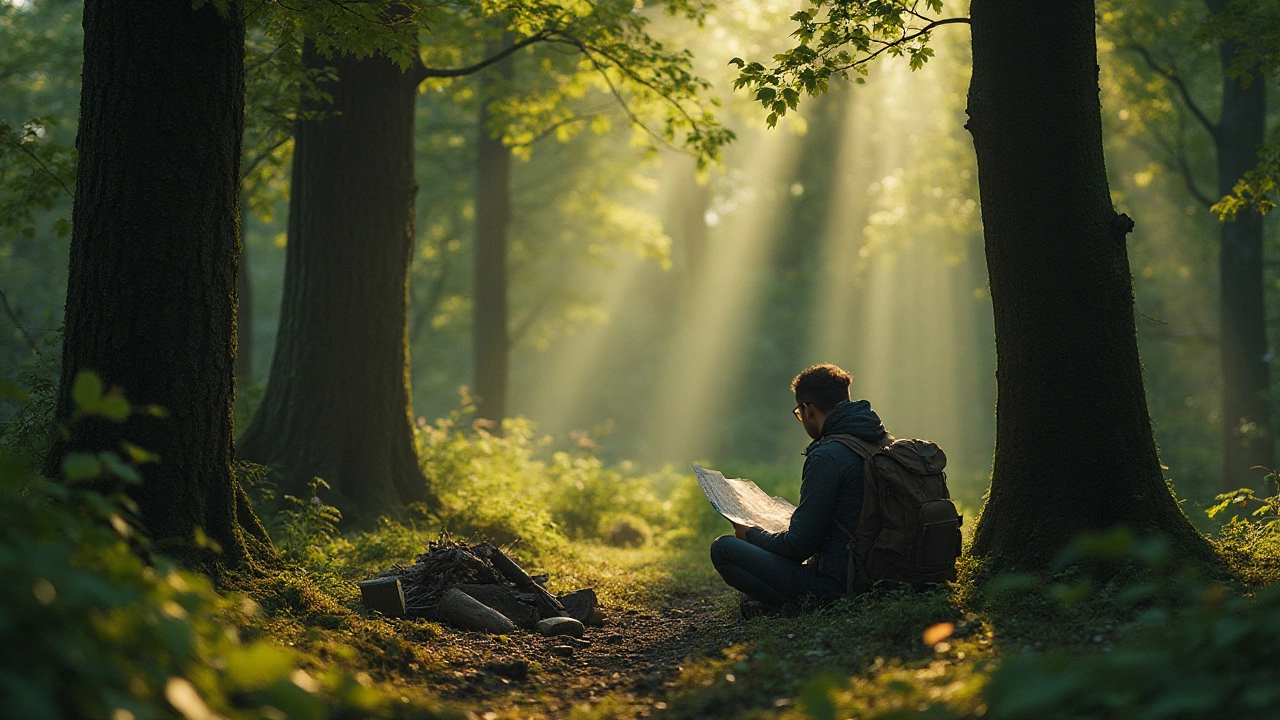Wilderness Skills: Your Shortcut to Safe, Fun Outdoor Adventures
Going off the beaten path is exciting, but without the right skills you can end up stuck, cold, or even in danger. Luckily you don’t need years of training to stay safe. Below you’ll find the core wilderness skills every camper should master, plus a few advanced tricks for those who want to level up. Grab a notebook – this is the practical guide you’ll actually use on the road.
Basic Survival Skills Every Camper Needs
Fire‑starting. A reliable fire means warmth, cooked meals, and a morale boost. Carry a ferro rod, some waterproof tinder, and a small lighter. Practice the “tinder‑to‑kindling‑to‑log” method at home so you can do it blindfolded when the weather gets nasty.
Finding and purifying water. A clear stream looks safe, but hidden microbes are common. Carry a portable water filter or a few chlorine tablets. If you’re in a hurry, the simplest trick is to boil water for at least one minute – it kills most pathogens.
Building a shelter. You don’t need a fancy tent every night. Learn two quick setups: a lean‑to using a tarp and branches, and a debris shelter for colder climates. Both can be built in under ten minutes if you’ve pre‑got the right knots and pole placement.
Navigation basics. Even if you rely on a GPS, you should know how to read a top‑map and use a compass. Plot your route before you leave, then check your bearing every hour. Remember the rule of thirds: keep your map, compass, and visual landmarks in view to avoid getting turned around.
First‑aid essentials. A compact kit with bandages, antiseptic wipes, painkillers, and a whistle can be a lifesaver. Practice the “cut, clean, cover” steps for cuts and know how to treat hypothermia – wrap the person in dry layers and give warm drinks if possible.
Advanced Bushcraft Techniques for the Wild
Foraging safely. Knowing which berries, mushrooms, and greens are edible can turn a bland trip into a feast. Start with a field guide for the UK and only eat what you can identify 100% – the rule “when in doubt, leave it out” saves headaches.
Signal and rescue. A handheld whistle, a mirror, and a fire‑smoke signal are your three go‑to tools. Three short blasts, three long blasts, and three short blasts is the universal SOS pattern. Combine that with a bright fire at night for extra visibility.
Tool maintenance. Keep your axe, knife, and multi‑tool sharp. A dull edge makes tasks harder and increases your risk of accidents. A quick stone sharpening session after each use keeps everything working like new.
Energy management. Pack lightweight, high‑calorie foods like dried beans, nuts, and energy bars. Pair them with a portable power station or a solar charger to keep your phone and lights running – a dead battery in the middle of nowhere is more stressful than a cold night.
These skills aren’t just theory; they’re the difference between a memorable adventure and a nightmare. Start small – pick one skill each weekend and practice it until it feels second nature. Before long you’ll be confident enough to tackle longer trips, remote campsites, and even spontaneous wild‑camping nights. Stay curious, stay prepared, and enjoy the freedom that comes with mastering wilderness skills.
